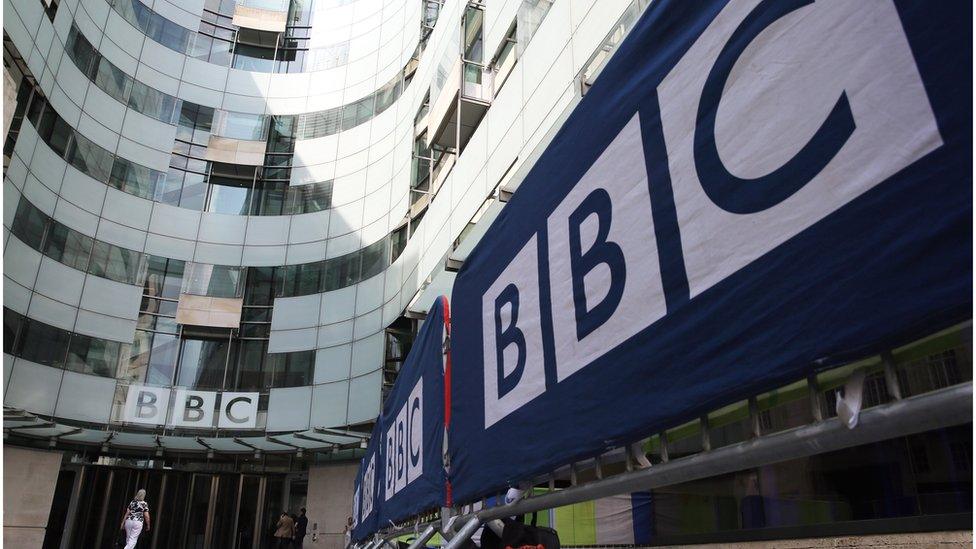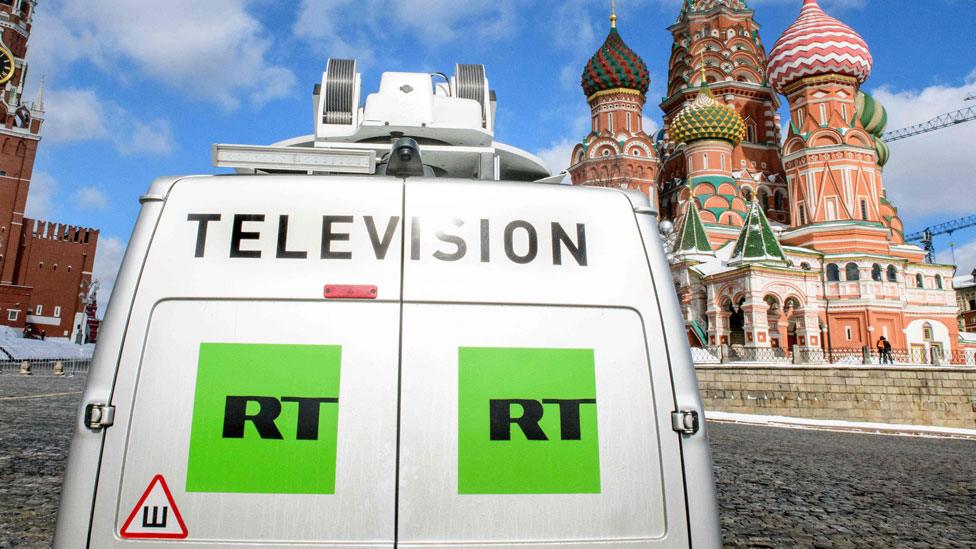Ofcom RT ruling: Russia to check BBC News in response
- Published

Russia's media regulator will check the output of BBC World News and BBC websites, in what the Kremlin calls a response to the UK regulator Ofcom.
On Thursday Ofcom ruled that Kremlin-backed RT had broken TV impartiality rules in seven programmes.
Kremlin spokesman Dmitry Peskov said many questions had arisen about the BBC's coverage of Russia.
The BBC said that BBC News in Russia was fully compliant with the country's laws and regulations.
Earlier, Ofcom found that RT, formerly known as Russia Today, had breached impartiality rules over six weeks between 17 March and 26 April.
Ofcom was especially critical of RT's coverage of the nerve agent attack in Salisbury on former Russian spy Sergei Skripal and his daughter. The UK government and its Western allies blamed the Russian government for the attack.

According to Mr Peskov, "for a long time questions have accumulated about biased coverage of events by BBC News".
"But", he went on, "no individual has the right to accuse the company - only the legally empowered regulator can do that."
He said the "questions" concerned BBC coverage of events in Russia and in Syria, where the Russian military is backing President Bashar al-Assad's forces.
On Facebook, Russian Foreign Ministry spokeswoman Maria Zakharova, external, said monitoring of the BBC by Roskomnadzor, the Russian state regulator, was "long overdue".
She accused the UK government of "crude interference in the activities of Russian media (constant propaganda against the RT TV channel, attempts to discredit our journalists, etc)". That "interference", she said, "leaves no other choice but a mirror response".
She added: "Russia has given warnings. Repeatedly."
Commenting on the Roskomnadzor decision, the BBC said: "As everywhere else in the world, the BBC works in Russia in full compliance with the country's laws and regulations to deliver independent news and information to its audiences."